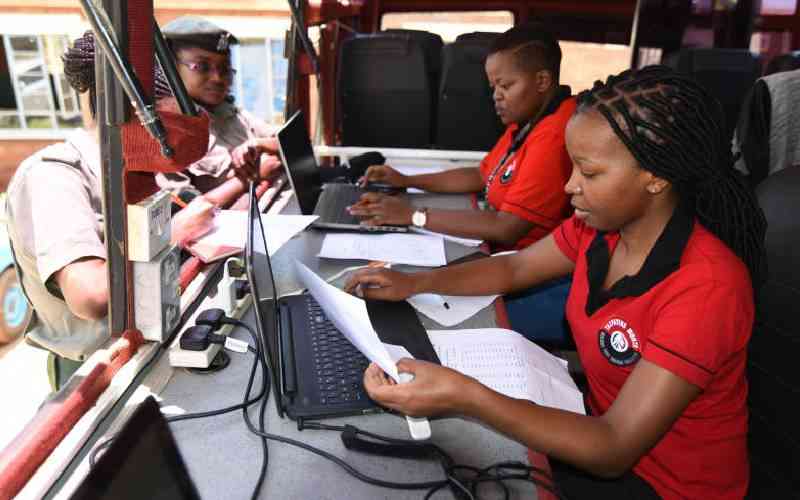
The increasing use of artificial intelligence (AI) is generating mixed reactions worldwide because of its transformative powers. For the optimist, the evolution of new technology will create new possibilities and opportunities for the advancement of humankind. For the pessimist, the rise of AI raises fears of human displacement in workplaces eventually culminating in enslavement by an army of intelligent machines.
Given a history of exploitation and colonisation by advanced nations, many Africans are also concerned that the emerging technology will increase the vulnerability of the continent. Feeding this uneasiness about the new frontier is the fact that AI uses historical data to build algorithms that are used to programme the new technology. The possibility that African data might be left out as developers configure the AI-important algorithm raises fears the continent might be invaded by culturally incompatible machines.
To guard against the risks of exclusion, developers of AI machines are making an effort to involve African experts to configure operating algorithms. For this reason, many optimists believe there is no reason to fear the new technology because Africans will overcome emerging challenges like they have done in the past. Just like Africans adapted to computers in homes and workplaces, the optimists believe we shall also learn how to use the smart machines the age of AI will throw our way.
While the African record of adapting to new technology is comforting, history also shows every new invention has prompted unsettling social and cultural changes. Nothing illustrates the potential consequence of the age of data science than the cultural transformation that was occasioned by the new learning that came with Christian missionaries in central Kenya.
Plato’s allegory
As historical records of the period show, the establishment of missionaries in rural enclaves transformed religious and cultural practices that were integral to the identity of mountain communities. Although traditionalists tried to resist foreign influences, their efforts proved futile when graduates of missionary education understood the science of how snow forms at high altitudes.
Since religion is an integral part of the culture of an African community, demystification of the snow-capped mountain resulted in communities abandoning associated rituals and traditions. Just as the man in Plato’s famous allegory never returned to his cave once he discovered the wonders of the outside world, graduates of missionary education did not revert to traditional culture after they grasped the basic science of the water cycle.
Looking back to a century of modernisation, it is clear that advances in technology and information will continue to bring about cultural changes in Africa. As Karl Marx observed, the culture of a society at any given moment is a synthesis of the forces operating in that community in time and space. Going by the logic of this Marxist theory, it stands to reason that the age of data science will inexorably transform the cultures of African communities whether we like it or not just like in the past.
Indeed, despite advances in technology, there are still many Kenyan cultures that are based on old pre-scientific myths and beliefs. Kenyan newspapers for instance still carry stories of witchcraft and traditional practices that indicate our communities are still living in pre-scientific age. Going by past experience, cultures that are based on myths rather than objective evidence will not be sustainable in the age of reason and data science.
A point of interest is whether the age of data science will transform a Kenyan political culture that is anchored in non-scientific myth of ethnic origins. For although traditional gods have been replaced by God of the Bible, many Kenyans still believe their ethnicity is passed down through their bloodline. This view becomes a political problem because if our differences are by God’s design, then the best we can hope is an ethnically fragmented nation where communities compete for scarce national resources.
According contemporary scientific view however, the idea that our ethnicity is inherited and somehow passed down genetically is not supported by any evidence. The contemporary scientific view is that ethnic identities are constructed in our minds by our parents and the community we live in. This view suggests Kenyans can construct a shared identity by constantly promoting a national as opposed to ethnic identity.
Of the many cultural changes the age of data science will bring, the question that begs is whether this will extend to our political culture. Will the dawn of the age of data science create shared experiences strong enough to fashion a common identity that transcends individual ethnic identities. More importantly, will the onset of the age of data science shift our conceptual framework from myths and traditional beliefs to a culture that is founded on hard evidence.
 The Standard Group Plc is a multi-media organization with investments in media
platforms spanning newspaper print operations, television, radio broadcasting,
digital and online services. The Standard Group is recognized as a leading
multi-media house in Kenya with a key influence in matters of national and
international interest.
The Standard Group Plc is a multi-media organization with investments in media
platforms spanning newspaper print operations, television, radio broadcasting,
digital and online services. The Standard Group is recognized as a leading
multi-media house in Kenya with a key influence in matters of national and
international interest.
 The Standard Group Plc is a multi-media organization with investments in media
platforms spanning newspaper print operations, television, radio broadcasting,
digital and online services. The Standard Group is recognized as a leading
multi-media house in Kenya with a key influence in matters of national and
international interest.
The Standard Group Plc is a multi-media organization with investments in media
platforms spanning newspaper print operations, television, radio broadcasting,
digital and online services. The Standard Group is recognized as a leading
multi-media house in Kenya with a key influence in matters of national and
international interest.











